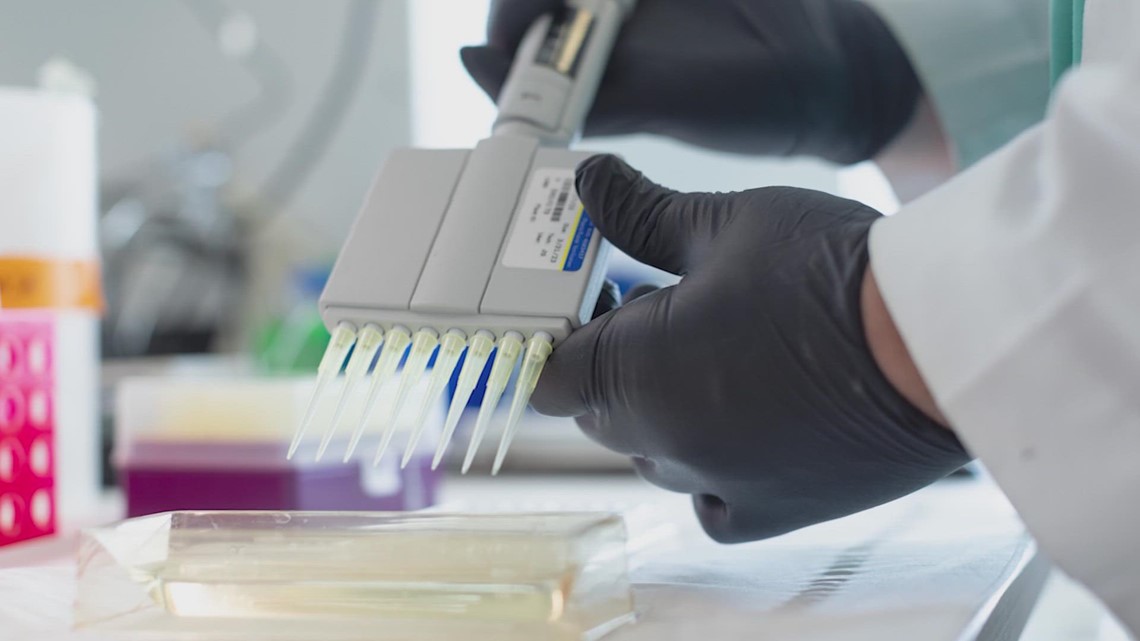According to a study, a new vaccine might stop lethal opioids from entering the brain. To prevent the harmful synthetic opioid fentanyl from entering the brain and producing its desired “high,” a brand-new vaccination has been created. The ground-breaking discovery may significantly affect the nation’s opioid epidemic by serving as a relapse prevention tool for opioid users trying to stop taking them. Opioid Use Disorder (OUD) is a curable disorder, according to a study.
However, 80% of people who become dependent on it relapse. So a research team led by the University of Houston created the vaccination.
The findings, which were just published in the journal Pharmaceutics, could not be more pertinent or in demand.
Fentanyl is not a natural opioid. It is a synthetic opioid that is 50 times more powerful and potent than heroin and 100 times more potent compared to morphine. It causes over 150 deaths every day. Depending on a person’s size, ingesting roughly 2 milligrams of fentanyl is likely lethal.

The fentanyl Vaccine works on the brain
“We believe these findings could significantly impact a severe problem plaguing society for years – opioid misuse. Our vaccine can generate anti-fentanyl antibodies that bind to the consumed fentanyl and prevent it from entering the brain, allowing it to be eliminated from the body via the kidneys. Thus, the individual will not feel the euphoric effects and can ‘get back on the wagon’ to sobriety,” said the study’s lead author Colin Haile.
He is a founding member of the UH Drug Discovery Institute and a research associate professor of psychology at UH and the Texas Institute for Measurement, Evaluation, and Statistics (TIMES).
Addition to street drugs
Due to its frequent addition to street drugs like cocaine and methamphetamine, other opioids like oxycodone and hydrocodone/acetaminophen tablets, and even fake benzodiazepines like Xanax and fentanyl pose a particularly severe hazard. In addition, these fentanyl-laced counterfeit medications increase the number of fentanyl overdoses in people who don’t typically use opioids.
“The anti-fentanyl antibodies were specific to fentanyl and a fentanyl derivative and did not cross-react with other opioids, such as morphine. So that means a vaccinated person would still be able to be treated for pain relief with other opioids,” Haile said.
The tested vaccination includes dmLT, an E. coli-derived adjuvant. A crucial element for the efficiency of anti-addiction vaccines is an adjuvant molecule, which increases the immune system’s reaction to vaccinations. The adjuvant, which partners created at the Tulane University School of Medicine, has proven essential to the vaccine’s effectiveness.
Along with experts from Baylor College of Medicine and the Michael E. DeBakey Veteran’s Affairs Medical Center, Greg Cuny, the Joseph P. & Shirley Shipman Buckley Endowed Professor of Drug Discovery at the University of Houston College of Pharmacy, is also a member of the team.
The success of methadone, buprenorphine, and naltrexone, the current treatments for OUD, depends on the formulation, compliance, availability of the drugs, and the particular opioid that was mishandled.
The novel vaccination has the potential to be a “game changer,” according to Therese Kosten, professor of psychology and program director for UH’s Developmental, Cognitive & Behavioral Neuroscience department.
“Fentanyl use and overdose is a particular treatment challenge that is not adequately addressed with current medications because its pharmacodynamics and managing acute overdose with the short-acting naloxone are not as effective as multiple doses of naloxone are often needed to reverse fentanyl’s fatal effects,” said Kosten.
The post Fentanyl Vaccine: Potential “Game Changer” for the Opioid Epidemic appeared first on TechStory.







0 comments:
Post a Comment